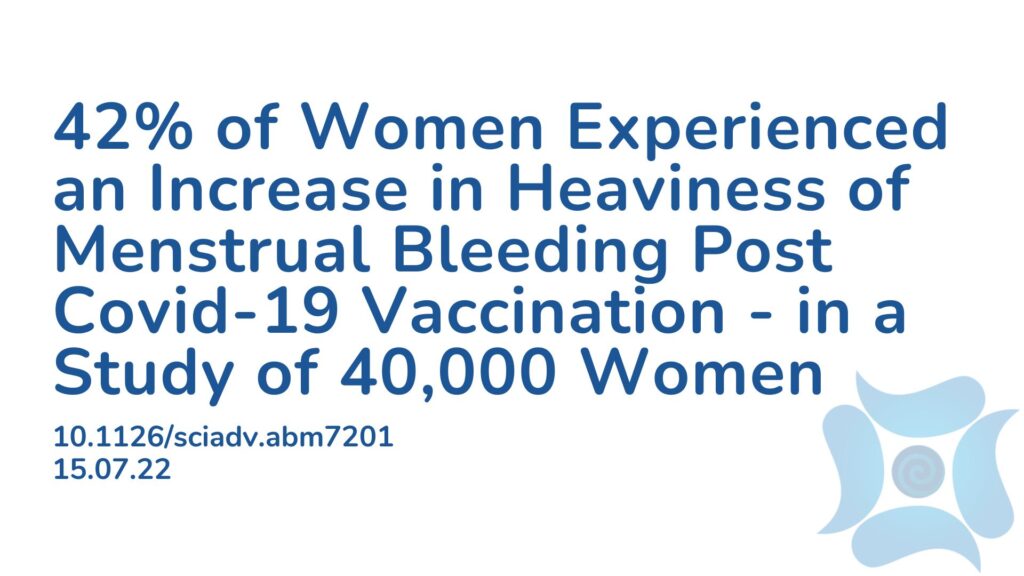Summary: Many people have shared that they experienced unexpected menstrual bleeding or other menstrual irregularities after receiving a Covid-19 vaccination. Considering that vaccine trials do not usually monitor for adverse events for more than seven days after administration and follow ups do not include questions regarding menstrual changes, manufacturers have had no way to address whether menstrual changes are a side effect of the vaccines. The media has portrayed that there is no relationship between the Covid-19 vaccine and menstrual changes, however studies that assess this relationship are negligible. This retrospective observational study recorded responses from 39,129 current and formerly menstruating adults. Of this cohort, 42% of people with regular menstrual cycles bleed more heavily than usual post their Covid-19 vaccination. 44% of participants reported no change after being vaccinated. Of the participants who typically do not menstruate due to contraceptives, gender-affirming hormones or being postmenopausal, a high number reported bleeding post vaccine. Increased or breakthrough bleeding post vaccine was found to be significantly associated with age, other side effects to the vaccine such as fatigue and/or fever, ethnicity and birth history. Whilst changes to menstrual cycles are evident, they are not considered dangerous. However, it is necessary for the media and practitioners alike to accurately reflect the potential side effects of vaccinations, in order for members of the public to make informed choices and to build trust between the medical profession and the general population.
Abstract:
Early in 2021, many people began sharing that they experienced unexpected menstrual bleeding after SARS-CoV-2 inoculation. We investigated this emerging phenomenon of changed menstrual bleeding patterns among a convenience sample of currently and formerly menstruating people using a web-based survey. In this sample, 42% of people with regular menstrual cycles bleed more heavily than usual, while 44% reported no change after being vaccinated. Among respondents who typically do not menstruate, 71% of people on long-acting reversible contraceptives, 39% of people on gender-affirming hormones, and 66% of postmenopausal people reported breakthrough bleeding. We found that increased/breakthrough bleeding was significantly associated with age, systemic vaccine side effects (fever and/or fatigue), history of pregnancy or birth, and ethnicity. Generally, changes to menstrual bleeding are not uncommon or dangerous, yet attention to these experiences is necessary to build trust in medicine.
Article Publication Date: 15.07.22
DOI: 10.1126/sciadv.abm7201




